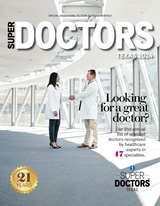Bone Health & Osteoporosis Foundation
News release (BHOF)
March 1, 2022
March is National Nutrition Month, a yearly initiative designed to teach Americans about the critical importance of good nutrition. It is the perfect platform for the Bone Health and Osteoporosis Foundation (BHOF) to educate Americans of all ages – especially parents and their kids — about the importance of eating a well-balanced diet to build strong bones. Diets high in calcium and vitamin D help ensure good bone development, growth, and preservation, which leads to a lifetime of active living.
The National Institutes of Health states that oftentimes when parents think about their children’s health, bones are not at the top of the list. But building strong bones in childhood and young adulthood is critical to help prevent osteoporosis and fractures later in life. Osteoporosis has been called “a childhood disease with old age consequences,” because the bone mass attained in childhood/adolescence is a significant determinant of one’s long-term skeletal strength. In fact, peak bone mass – the strongest and densest bone an individual can attain – is reached in our early to mid-20s.
A recent study in PLOS Medicine (February 2022) revealed that if a young female began eating optimally at age 20, she could increase her lifespan by just over 10 years. Similarly, a male could add 13 years to his life.
While longevity is important, being able to be active when we’re older is even more critical. Approximately 10 million Americans, age 50 and above, have osteoporosis, and another 44 million have low bone density, placing them at an increased risk for bone fractures. Most people are not aware that bone fractures related to osteoporosis are responsible for more hospitalizations than heart attacks, strokes, and breast cancer combined.
“Nutrition plays an important role in living healthy, fulfilling lives,” said Claire Gill, CEO of BHOF. “We hope people will recognize that good nutrition is important in preventing and managing many chronic diseases, including osteoporosis.”
“As we age, our goals may shift and our priorities may change but good health should always be on the list,” stated Heidi Skolnik, co-author of “Whole Body Reset” and sports nutritionist at the Women Sports Medicine Center at Hospital for Special Surgery. “Creating dietary patterns that include nutrient-rich foods with daily movement is the best combination for strong bones throughout the lifespan.”
Improving our daily diet can have benefits for the whole family. Below are several family-friendly, bone-building tips:
- Let kids enjoy smoothies when on the go. They are loaded with nutrients, and those made with yogurt and milk have added protein, calcium, and vitamin D.
- If you or your family members are lactose intolerant, seek out vitamin D fortified milk alternatives, such as almond, soy, or rice milk – or the newest addition to the lactose-free family: oat milk.
- Sneak calcium-rich products into soups and stews when cooking.
- Be adventurous in the kitchen and encourage younger eaters to try new things. Purchase a copy of our BHOF cookbook for new recipes: https://store.nof.org/products/food-for-bones-cookbook.
- Add more fish to your diet for good overall health. Salmon is a bone-healthy choice which is also great for cardiovascular and brain health.
- Involve your young chefs when meal planning. Kids are more likely to eat nutritious meals if they have been given a role in the food choices, grocery lists, shopping, and meal prepping.
Calcium and vitamin D are the two essential nutrients needed for building strong, dense bones when you’re young and to keeping them healthy as you age.
Calcium is a mineral that is not only for bone health but also for enabling our blood to clot, muscles to contract and heart to beat. An estimated 99 percent of calcium in our bodies is in the bones and teeth. Every day, we lose this essential mineral through skin, nails, hair, sweat, urine and feces. Our bodies do not produce calcium. This is why it is an absolute “must” to get enough of this mineral by carefully selecting the foods that we eat. When we don’t get the calcium our body needs, it is taken from our bones. This is fine once in a while but if it happens too often, bones weaken and are broken more easily.
BHOF’s Calcium and Vitamin D overview shares excellent information on the importance of these vital nutrients in addition to how much you need, what the best sources are and details about supplements.
Your Guide to a Bone Healthy Diet is another useful calcium and vitamin D primer.

